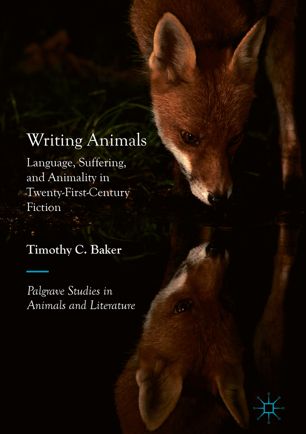

Most ebook files are in PDF format, so you can easily read them using various software such as Foxit Reader or directly on the Google Chrome browser.
Some ebook files are released by publishers in other formats such as .awz, .mobi, .epub, .fb2, etc. You may need to install specific software to read these formats on mobile/PC, such as Calibre.
Please read the tutorial at this link: https://ebookbell.com/faq
We offer FREE conversion to the popular formats you request; however, this may take some time. Therefore, right after payment, please email us, and we will try to provide the service as quickly as possible.
For some exceptional file formats or broken links (if any), please refrain from opening any disputes. Instead, email us first, and we will try to assist within a maximum of 6 hours.
EbookBell Team

5.0
110 reviewsThis book surveys a broad range of contemporary texts to show how representations of human-animal relations challenge the anthropocentric nature of fiction. By looking at the relation between language and suffering in twenty-first-century fiction and drawing on a wide range of theoretical approaches, Baker suggests new opportunities for exploring the centrality of nonhuman animals in recent fiction: writing animal lives leads to new narrative structures and forms of expression. These novels destabilise assumptions about the nature of pain and vulnerability, the burden of literary inheritance, the challenge of writing the Anthropocene, and the relation between text and image. Including both well-known authors and emerging talents, from J.M. Coetzee and Karen Joy Fowler to Sarah Hall, Alexis Wright, and Max Porter, and texts from experimental fiction to work for children, Writing Animals offers an original perspective on both contemporary fiction and the field of literary animal studies.